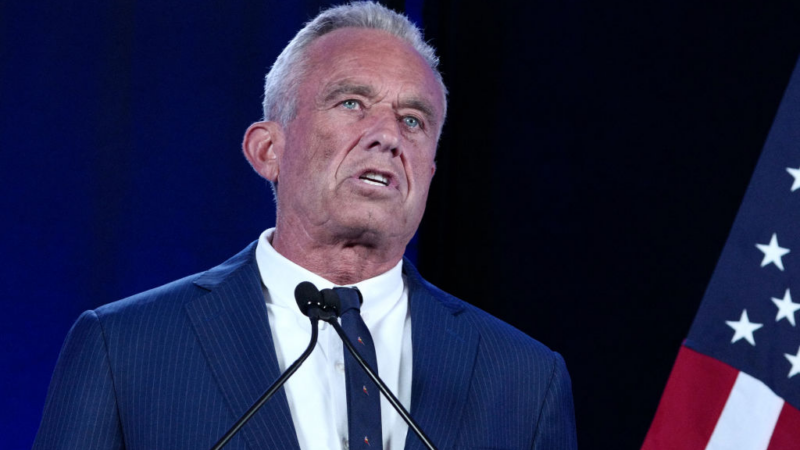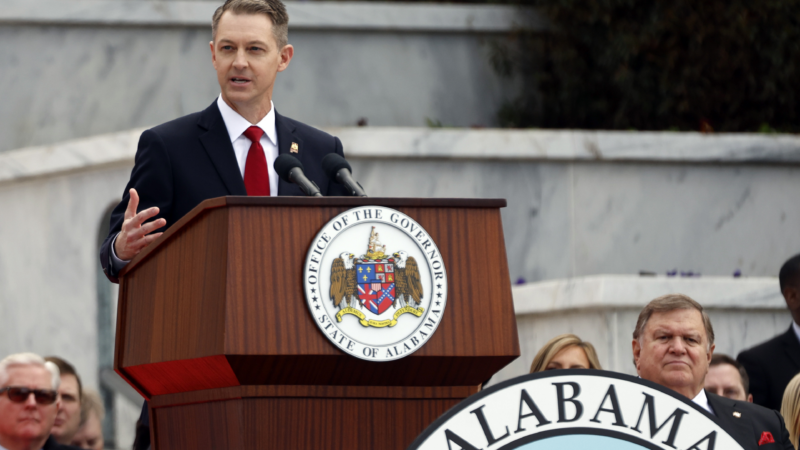Supreme Court rejects RFK Jr’s appeal to be put on the New York ballot
The U.S. Supreme Court on Friday allowed New York to block former-presidential candidate Robert F. Kennedy Jr. from the state’s 2024 general election ballot.
“The application for writ of injunction presented to Justice Sotomayor and by her referred to the Court is denied,” the court said in a one-sentence order. There were no noted dissents.
In New York, major party candidates automatically appear on the ballot, but minor party candidates must collect 45,000 voter signatures by petition in order to qualify. In this case, Kennedy gathered more than 100,000 valid signatures and was added to the ballot by the Board of Elections this past May.
But multiple individuals with ties to the Democratic party challenged Kennedy’s addition to the ballot, and two New York state courts ordered Kennedy removed from the ballot, finding that he used an invalid address on the nominating petition.
Under New York’s election law, minor party candidates must include their “place of residence” on the petition. And the candidate’s residence must be the “fixed, permanent and principal home” to which the candidate “always intends to return.”
Kennedy, however, did not use the address where he lives with his wife in Los Angeles. Instead he used the address where he rents a room from a childhood friend in New York. Although he is registered to vote at the New York address, he concedes he has stayed there overnight on only “one occasion.” Although Kennedy asserted that he always intended to return to the Empire State after his wife’s “Hollywood career is over,” the New York appellate division ruled that the New York room Kennedy rents was not his “fixed and permanent” home. The court thus ruled invalid his petition, and struck his name from the ballot.
Kennedy promptly asked the U.S. Supreme Court to block that ruling, pending appeal. He argued that the residence requirement imposes a severe burden on minor party candidates without protecting any legitimate state interests. In addition, he maintained that the permanent address requirement violates both the U.S. Constitution’s guarantee to due process of law and the First Amendment rights of voters whose political preferences “lie outside the existing [major] political parties.”
Ultimately, however, the Supreme Court refused on Friday to intervene, leaving Kennedy, who has withdrawn from the presidential race and endorsed Donald Trump, off the New York state ballot.
A stranded machine transforms through motherhood in Chris Sanders’ ‘Wild Robot’
A shipwrecked robot named Roz is accidentally activated by the wild animals on an otherwise uninhabited island in The Wild Robot, an animated adventure from the makers of How to Train Your Dragon.
Helene leaves massive destruction and flooding in its path north
Tropical depression Helene continues causing widespread damage inland after making landfall as a hurricane in Florida’s Big Bend region. The Associated Press says at least 35 people have died.
Justice Department sues Alabama, claiming it purged voters too close to the election
In a new lawsuit, the Justice Department claims Alabama violated federal law by systematically removing voters fewer than 90 days before a federal election.
Trump switched his focus to Haitian migrants in a small town in Pennsylvania
Haitian migrants in Springfield, Ohio, had an overwhelming month after Donald Trump made false statements about them. Recently, he’s focused his attention on Charleroi, Penn.
Losing GPS would cost the U.S. $1 billion a day. So why is there no backup?
A total outage of GPS could cost the country at least $1 billion a day. And there's no backup. Russia and China have backups, but the U.S. doesn’t.
Japan’s new PM promises to bring continuity and changes to dealings with U.S.
Japan’s ruling party has elected a new leader: former defense minister Shigeru Ishiba. He promises continuity, but has also proposed striking changes to the country's dealings with the United States.



